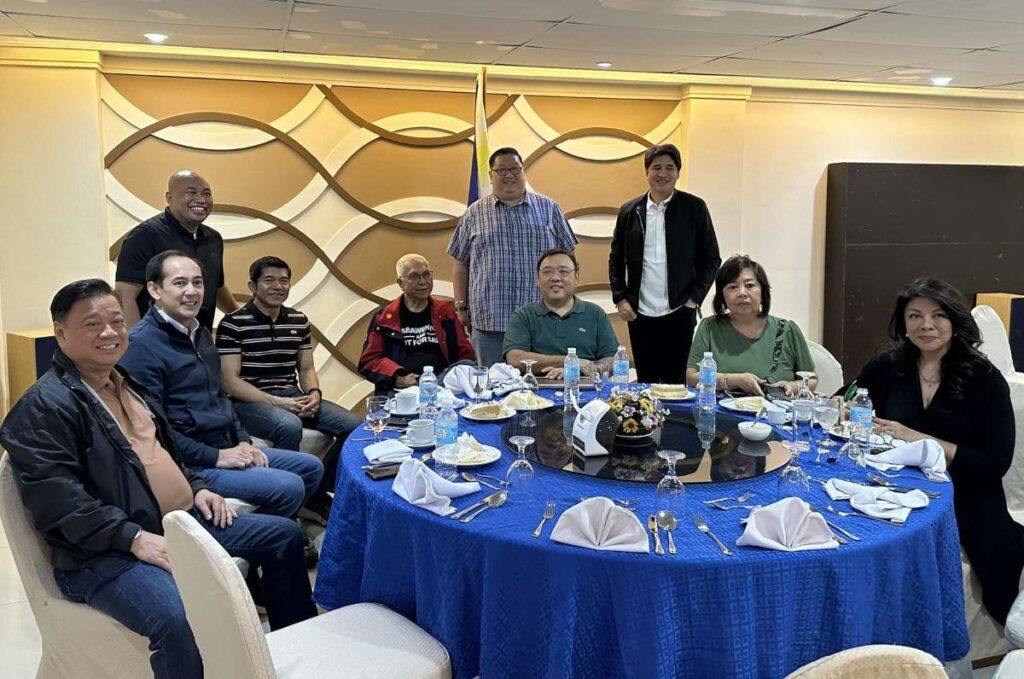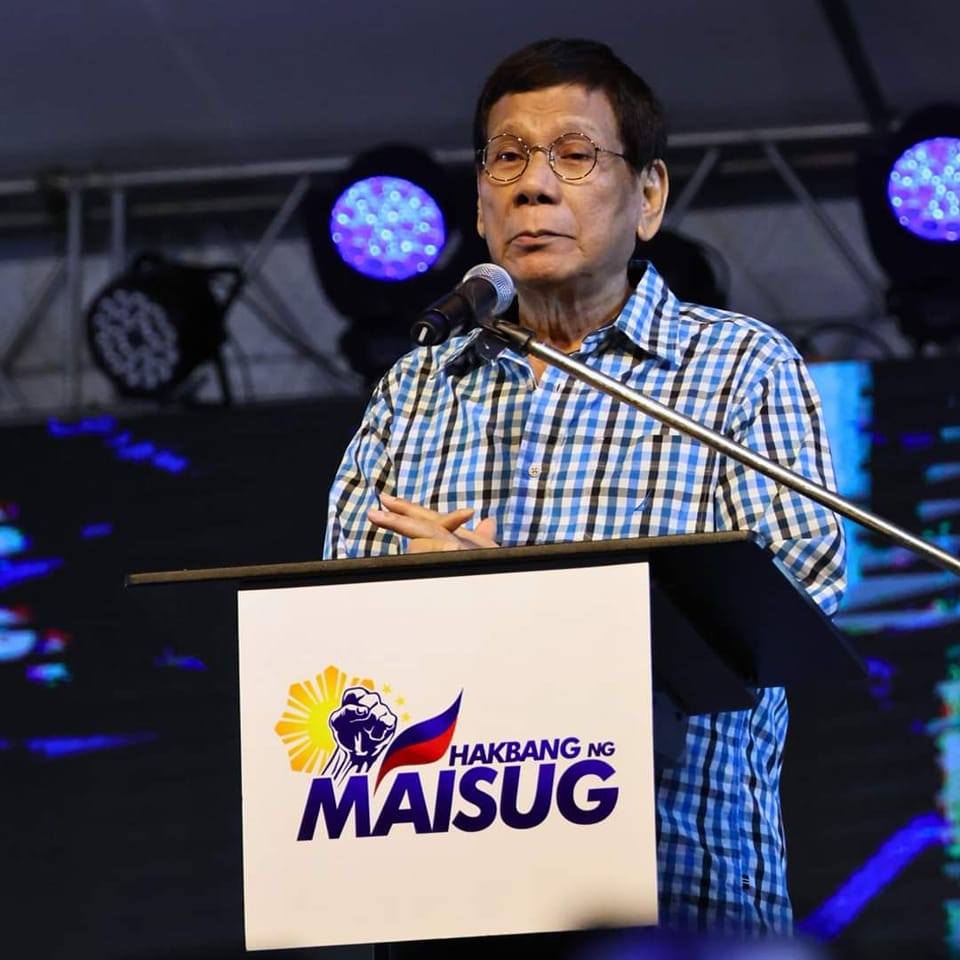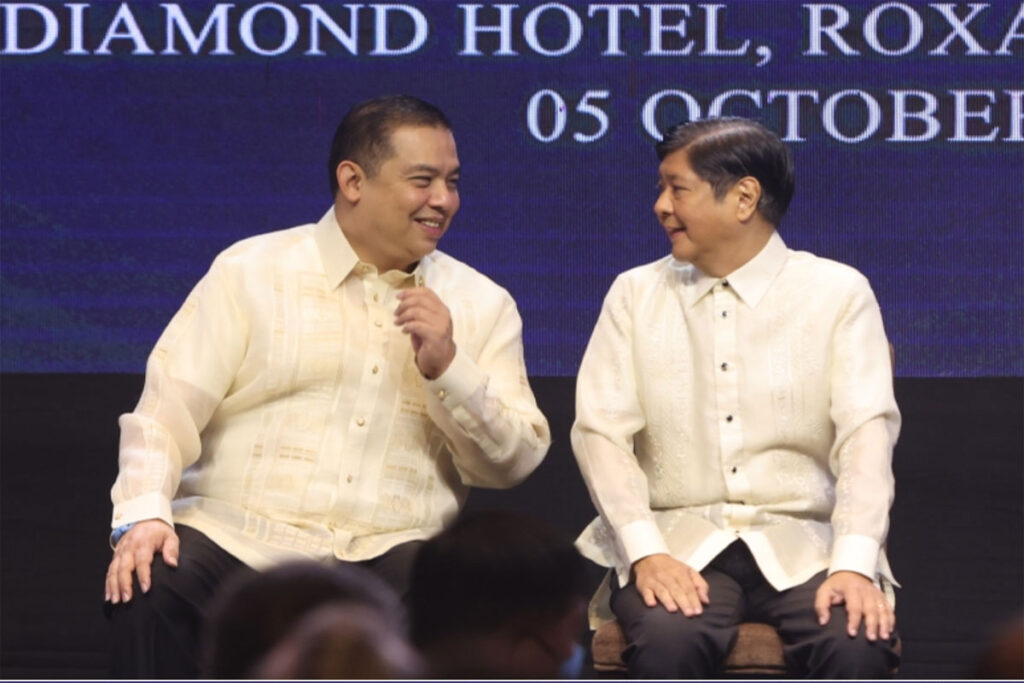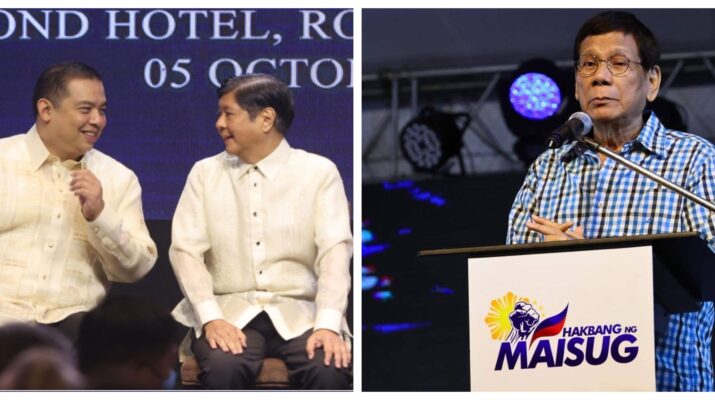After being effectively sidelined by incumbent President Bongbong Marcos’ own people, prominent supporters and ex-government appointees of former president Rodrigo Duterte gathered in the latter’s hometown of Davao City on 28 January for a so-called, “leaders’ forum”.
Although vehemently denied to be a political event, the forum – dubbed “Hakbang ng Maisug” – featured Duterte blaming his successor, Marcos for the alleged worsening problems of illegal drugs and insurgency in the country.
Even more damning, the former president’s son and current Davao City Mayor Sebastian “Baste” Duterte also spoke at the forum and said – in reference to President Marcos: “If you don’t show love and aspiration for the country, better resign.”

Such pronouncements are seismic shifts in the Philippine political landscape. Although Rodrigo Duterte never endorsed President Marcos during the 2022 presidential elections, it was widely assumed he implicitly supported the administration given that his daughter – Sara Duterte – was Marcos Jr’s running-mate and current vice president.
Much more, former President Duterte’s supporters overwhelmingly backed Marcos’ bid for the presidency in that election also; forming an alliance with Marcos loyalists that was dubbed the “UniTeam” (UnityTeam).
Since then however, fissures have been forming in the relationship between traditional Duterte backers and loyalist Marcos allies. There are large distinctions between how President Duterte ran the country’s affairs, and how the incumbent head-of-state does things.
The most significant perhaps is President Marcos’ willingness to work with the United States. Such move is a no-brainer considering the threat posed by the People’s Republic of China (PRC) in the West Philippine Sea, however his predecessor was more antagonistic of the Americans and more willing to work with the Chinese.

The Marcos political dynasty has historically been close with Uncle Sam. During the height of the Cold War, President Ferdinand Marcos Jr. was a key ally for the West in the Pacific, eventually being the catalyst for the Southeast Asian Treaty Organisation (SEATO) military alliance that was designed to be a bulwark for the spread of communism in Asia.
It is also due to this closeness with the U.S. and the wider West that Marcos Jr. is more receptive to international pressure, unlike Duterte. The incumbent President’s attentiveness to foreign sentiment has led him to take a more nuanced approach to dealing with illegal drugs and the communist rebellion in the Philippines.
This attitude is divergent from Rodrigo Duterte’s familiar punitive approach to both issues. The Duterte administration is perhaps infamous for its so-called “War on Drugs”, which targeted mostly non-violent drug users, while its crackdown on the communist rebellion also led to attacks on non-combatants and left-leaning activists.
However, style of governance is not enough to explain the current dispute between the Marcos and Duterte camps. Perhaps the most crucial aspect in the breakdown of their relations can be explained in the contradictions between their political backers.
The fragile alliance that the Marcos and Duterte political dynasties initially forged was widely seen to have been brokered by former president Gloria Arroyo. When the former chief executive was removed as a deputy speaker in the House of Representatives, it raised suspicions that something was amiss in the political alliance.
Arroyo’s demotion also prompted VP Duterte to resign from the political party she joined to become Marcos’ running-mate. Also telling was the cryptic manner which the younger Duterte left the Lakas-Kampi Christian Muslim Democrats party, and the apparent tension she had with its leader – House Speaker Martin Romualdez, a cousin to the current president and rumoured to be a future presidential contender himself.
These series of events would make the unravelling of the Marcos-Duterte alliance more obvious. Eventually, longstanding Duterte propagandists such as Lorraine Badoy and radio broadcaster Jeffrey Celiz, began openly attacking the President and Speaker Romualdez as well.
In retaliation, the Marcos government’s allies in Congress sought to charge the two Duterte allies and even held them in contempt for refusing to name their source during a House committee hearing.

As former President Duterte’s backers were being pushed out of power, they would be replaced by figures who were more closely aligned with the Marcos family. It should also not be taken as coincidence that this alliance began to unravel a year before the 2025 mid-term elections, a contest which is expected to pit Marcos and Duterte-aligned candidates against each other.
The weeding out of Duterte allies in positions of power was Marcos’ clandestine attempt to solidify his control on the country. The leader’s forum in Davao City is the Duterte family’s attempt to regroup and rebuild its ranks to wrest power back from Marcos in next year’s election.
After months selling the message of a “UniTeam” during the 2022 election campaign, the Marcos and Duterte dynasties now find themselves as enemies. And although things may already seem heated between the two sides this early on, with the 2025 mid-term election still more than a year away we should only expect the tensions between Marcos and Duterte to further escalate.

